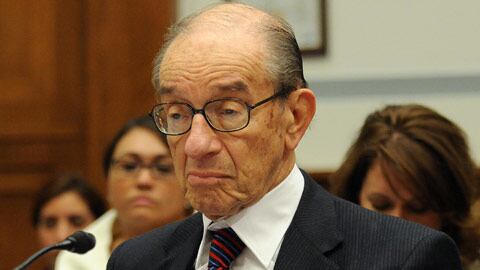No one’s predicted every turn of the downward spiral in the credit crisis, but here are five who saw enough of the trouble coming to get out or switch strategies. Then there are those who badly misjudged the housing-to-mortgage defaults-to Wall Street implosion. Perhaps they were trapped or blindly hopeful, but for what ever reason, they’re now on the losing side.
Click below to view the Good and Bad Bets on Housing gallery.

Five Who Knew
Mortimer ZuckermanThe head of Boston Properties says he began to realize the housing market wasn’t sustainable at the beginning of 2007. “The same thing was true in commercial real estate, so we sold more than $4.25 billion of properties at the end of 2006 and 2007, realizing that prices were extraordinary, and unsustainable.” And they bought the $2.8 billion trophy Midtown GM building. He is keeping his money in cash for now. “I have been an optimist all of my life, and I hate to be a bear, but this is going to be a very serious recession.”
John Paulson of Paulson & Co.In 2005, a hedge fund manager from Queens became suspicious of undue optimism when his bets that certain bonds would lose value weren’t paying off, even though some of the companies were in bankruptcy. John Paulson, or J.P. as he is known, urged his traders to buy up credit default swaps, or insurance instruments that would pay out if mortgages began to sour. At first, they lost money, but in January 2006, Ameriquest Mortgage Co. paid $325 million for improper lending practices. Paulson doubled down. Last year, his two funds dedicated to betting against the housing sector rose 590% and 350%, respectively.
Brooksley BornIn a speech in 1998, the former chair of the Commodity Futures Trading Commission warned that the $60 trillion derivatives market “may pose grave dangers to our economy.” But she was up against formidable opponents in Alan Greenspan and Robert Rubin. Some months later, she admitted defeat and left her post when Congress imposed a six-month freeze over her regulatory authority. In 1999, almost exactly a year after she made the speech, Greenspan and Rubin recommended Congress permanently rescind the CFTC’s role regulating derivates.
Charles MungerA constant companion of Warren Buffet, Munger has long warned about derivatives. His take on the accounting methods for derivatives in 2002 is a classic: “It is a sewer, and if I’m right, there will be hell to pay in due course.” Munger “made the observation that derivatives make risk relatively unimportant, that the risks become so widespread that if the worst happens, there is little harm being incurred by any one party, but the system as a whole collapses,” said John Slain, a professor of law emeritus at New York Law School. “He’s been warning of this day for ten years.”
Jonathan MillerThree years ago, Miller, president of appraisal firm Miller Samuel, became frustrated with the appraisal industry, concerned that some of his colleagues were complicit in creating a housing bubble by purposefully inflating home values. “Most mortgage brokers and lenders we dealt with were interested in only making ‘the number’,” Miller said of the stress to appraise a home for the same value as the purchase price. “If you couldn’t make them happy, they would find someone who would.” He added, “there seemed to be no oversight on a federal level, and entities like ratings agencies had their hand in the cookie jar as well.”
And Five Who Missed the Cues on the Housing Market Slide.
Ken Thompson and a Dishonorable Mention for Ken LewisLast May, then-CEO of Wachovia, Ken Thompson, was feeling confident that his $24 billion acquisition of mortgage lender Golden West Financial Corp.—negotiated over a single weekend a year earlier—would result in "Credit quality is not an issue," said, adding the deal would "hit the ball out of the park." Instead, 18 months later Thompson and Wachovia are gone. As for Bank of America Chief Executive Ken Lewis, while he has managed to steer his bank out of danger, he also spent $4 billion to buy notorious mortgage lender Countrywide. The deal led to a settlement estimated over $8.6 billion.
William DonaldsonIn April 2004, the SEC under then-Chairman Donaldson instituted a voluntary program to manage the risk of the five largest broker dealers. The so-called Consolidated Supervised Entities program allowed the banks to blow past the limits for debt-to-net capital ratio "The SEC modification in 2004 is the primary reason for all of the losses that have occurred," said Lee Pickard, a former director of the SEC's trading and marketing division. "They constructed a mechanism that simply didn't work. The proof is in the pudding." Three of the five largest broker dealers are now gone.
Harry MackloweWhen 71-year-old Harry Macklowe took 10 days in February 2007 to snatch up a $7 billion portfolio of prime Midtown Manhattan office buildings, entirely paid for with bank loans save for $50 million of his own money, it was touted as a sign of the real estate market frenzy. Weeks later, the heightened pace of deal-making came to a screeching halt. Macklowe couldn't afford to pay the interest on the short-term loans he took out to finance the purchase, and was forced earlier this year to give one of his chief lenders, Deutsche Bank, control of seven properties.
Alan GreenspanThe former Fed chairman kept interest rates at historic lows—bringing the key interest rate to 1% for much of 2003—creating cheap debt and spurring the housing bubble. Saying he was "in a state of shocked disbelief," Greenspan testified to Congress last week, admitting to some misjudgments. But to many, it is too late. "Greenspan was wrong on three fronts: he gave the green light to President Bush's tax cuts, he kept rates too low, and he refused to intervene in regulating mortgage lending," Mort Zuckerman said. "He was at the heart of the problem."
Robert TollAs the largest luxury American homebuilder, Toll Brothers has been whipsawed by the housing meltdown as much as any one in construction. Despite the fact the company's revenue declined 34% so far this year as home sales slid to a 10-year low, Toll, the chief executive, remains optimistic. "People's natural desires have always put them in a place where they want big, better homes and I think we'll see it again," he told CNBC earlier this month.






